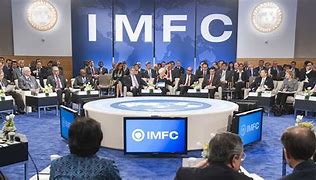The International Monetary Fund (IMF) has clarified that it was not responsible for Nigeria’s recent decision to remove fuel subsidies, a move that has led to inflationary pressures and increased hardship for many Nigerians.
Speaking at a press conference during the IMF and World Bank Annual Meetings in Washington DC, IMF African Region Director Abebe Selassie emphasized that the decision was made solely by the Nigerian government without any program involvement from the IMF.
“The decision was a domestic one,” Selassie said. “We don’t have programmes in Nigeria. Our role is limited to regular dialogue, as we have with other nations like Japan or the UK.”
This statement came as the IMF faced criticism over Nigeria’s recent economic reforms, which have been seen as a catalyst for inflation and social challenges.
READ ALSO: We Are Not Responsible For Recent Hike In Petrol Pump Price- FG
Selassie acknowledged that the IMF provides guidance on public resource management, including advice on optimizing expenditures and increasing efficiency.
He explained that Nigeria’s decision to remove subsidies aligns with the government’s long-term strategy to shift resources toward essential areas such as infrastructure, healthcare, and education.
“Ultimately, these are profound domestic and political decisions that the government had to make,” he noted, underscoring the IMF’s view that such choices reflect Nigeria’s commitment to sustainable economic growth.
Recognizing the economic impact on Nigerian citizens, Selassie urged the Nigerian government to bolster social investments, recommending programs to assist vulnerable populations during the transition.
READ ALSO: Fuel Price Hikes: Endurance for the Masses, Extravagance for the Elite, and Global Comparisons
“We recognize the significant social costs involved,” he said, adding that the government could mitigate these effects by “expanding social protection for the most vulnerable.”
The IMF’s statements seek to clarify its advisory role and address public concerns about its involvement in the subsidy removal, a policy choice that has ignited debate over Nigeria’s economic direction amid increasing living costs.
As Nigeria navigates these fiscal changes, the IMF reiterated its support for policies aimed at long-term growth and sustainable public resource management.

